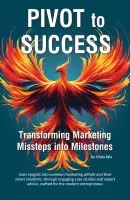- +1 512-591-8295
- [email protected]
- Mon - Fri: 9:00 - 16:00

I get SO many questions about marketing a business that are along the lines of:
“I am working with a marketing coach and she said I must start using Pinterest for my business. I’ve never even been on Pinterest, do I really have to be using it?”
“I am working with a social media guru and she said I must start doing a live video at least once a day on my business page. I hate being on video, but I’ve tried a few but no one has watched them. Do I really have to be doing video?”
“I am working with a Facebook expert and he told me that I must start boosting a couple of my Facebook posts every week. I’ve tried it a few times and it just seems like a waste of money. Do I really have to boost posts?”
There are only two things that I tell all clients they MUST do to market their business: have their own website that is not under the control of a third party vendor, and have their own email list that doesn’t reside solely on social media or in the confines of a third party vendor. Everything else just depends.

This is a case where, if you have to ask the question, you probably already know the answer. Here’s some insight that will back up what you’re feeling.
I have been doing marketing for 30 years – which means that I have worked with a LOT of different clients, in different industries, some B2B and some B2C, some extremely high end, some very visible and others not so much. I’ve worked with pretty much every type of marketing strategy and tactic you can imagine.
I’ve worked as an entrepreneur, worked with entrepreneur clients, been a Chief Marketing Officer of a corporation with multiple businesses under their corporate umbrella, worked with nonprofits who had ZERO budget … and everything in between.

I’ve been an early adopter of new marketing strategies and technology along the way. Things like Facebook, which I joined in 2006 and began using for business shortly after. And chatbot messenger marketing, which I’ve been doing for about four years. Text marketing for about a decade. Mobile apps marketing for about the same amount of time.
Videos and animation, which I’ve been doing for close to 20 years. Virtual marketing which takes digital marketing to an entirely different place.
Some of these things that you’re just now thinking about doing, or just started doing, to market your business, I have been doing for a. very. long. time.
And I’ve done each of these types of marketing – and many others – for a lot of different clients, so I’ve seen a lot of different ways that it works. And a lot of different ways that it does not.
One thing I have learned over the years, there is no one way to do marketing. There are, however, some best practices to get right.
Another thing I have learned over the years is that there are a lot of people who have learned one way to do marketing, and seen a bit of success with that one way, and decided to start a business teaching that one way, but have not learned another way. And so they have fallen into that trap of when you only have a hammer, everything looks like a nail.
Here’s the thing.
Even if you really don’t understand marketing, I’ve found that most entrepreneurs do understand their customer. In many cases you haven’t formally put that in writing, or expressed it out loud. But in your gut, you know.
So when you hear something, you may instinctively feel that it won’t work for your client base, or that it doesn’t feel authentic to you.
If a marketing strategy doesn’t feel authentic to you, it sure won’t feel authentic to your customers when you try to do it.
Like I said, this is one of those times where, if you have to ask the question, you already know the answer.
If you’re asking yourself the question of whether you really HAVE to do some type of marketing, I recommend that you check out your guru / expert / coach’s experience.
There are a lot of marketing experts who started their marketing business based upon one way of doing things, that one way they learned, and have since taken a strategic approach to expanding their knowledge and expertise into additional marketing strategies, additional clients and industries, and have a solid track record of knowing what can work for a lot of different businesses.
There are also a lot of marketing experts who started posting things on social media three months ago, decided to make it a business, and now are offering their services as a marketing or social media expert. More power to them! I’m all about people becoming an entrepreneur. Where you have to do your due diligence is in understanding if they have the depth and breadth of knowledge to understand if their method will work for you and your business, if it needs modified to work for you, or if you need to choose a different method completely.
If you’re implementing a strategy that you’ve been given, and it’s working, keep doing it!
If you’re questioning a strategy that we’ve been given, we have a few suggestions that may help you understand the depth and breadth of experience that you’re working with:
Check how much experience your expert has. Find their profile on LinkedIn and view their experience there. Check their website and see if it has a start date or amount and level of experience listed. Check their blog and see when they added their first post, and scroll through and see what type of information they post. If they don’t have a LinkedIn profile or a website, check their social media business page and review how much experience they list on their about page, or scroll down and find their first post and see when it was posted.
At least you can get a quick understanding as to whether someone has, say, less than a year of experience, or several years of experience under their belt. Granted, this doesn’t mean the person will know everything, especially given how quickly and how often social media platforms, Google, and everything else in the world of digital marketing can change from day to day (it’s a fulltime job just for us to keep up!), but it does mean they should know when a strategy will not work for you at all, AND should have alternate strategies to recommend.
These steps can help you determine the scope and level of experience that someone has, but can’t always tell you the results that they achieved. This information may be available on their website if they showcase results or have white papers or case studies you can review.
If they only have one way to do it … you may need to seek a second opinion.
Let the pros handle your social media.
Get solid marketing strategies, designed for entrepreneurs on the track to 7-figures and beyond, right in your inbox.

This website uses cookies to ensure you get the best experience on our website. By continuing to use the website, you agree to our use of cookies. We do not share or sell your information. More info
